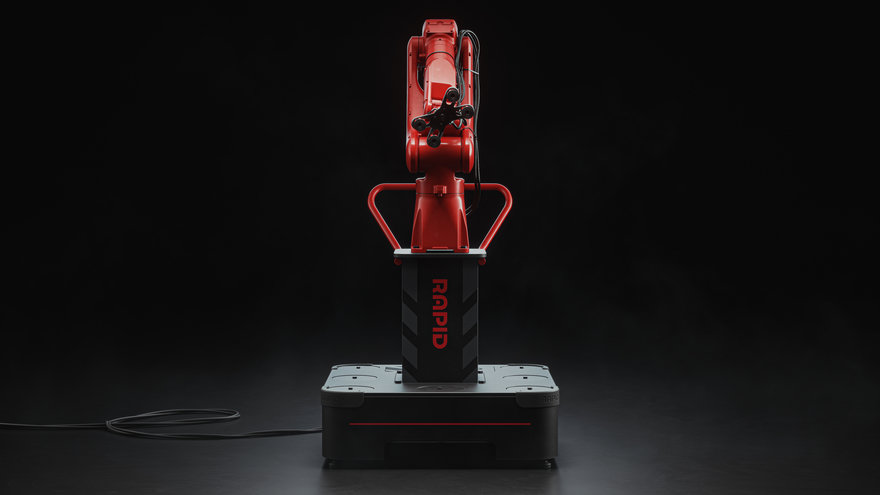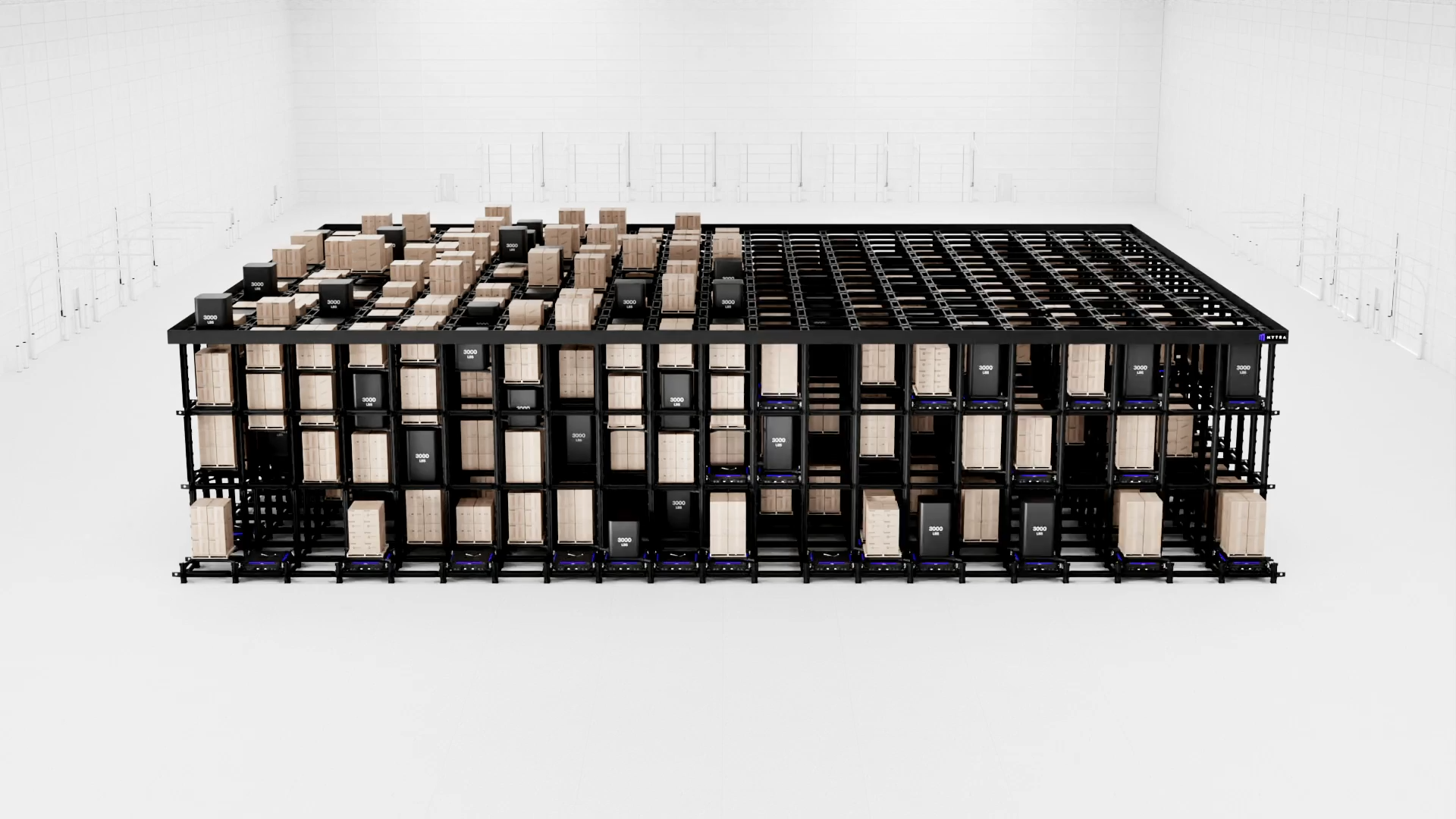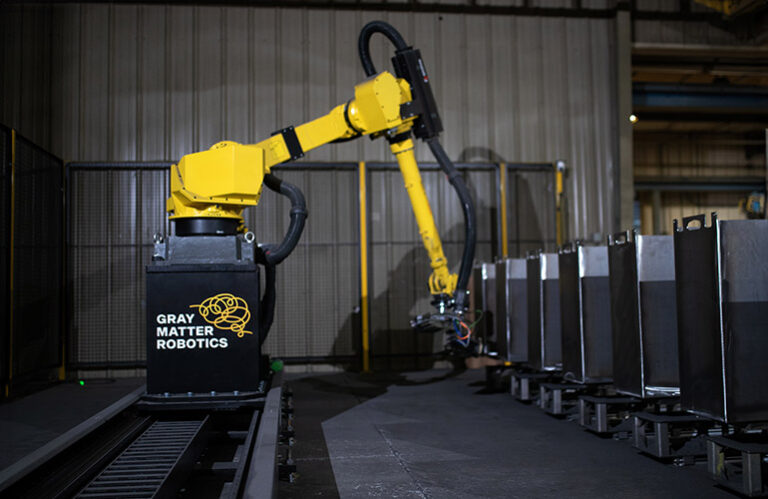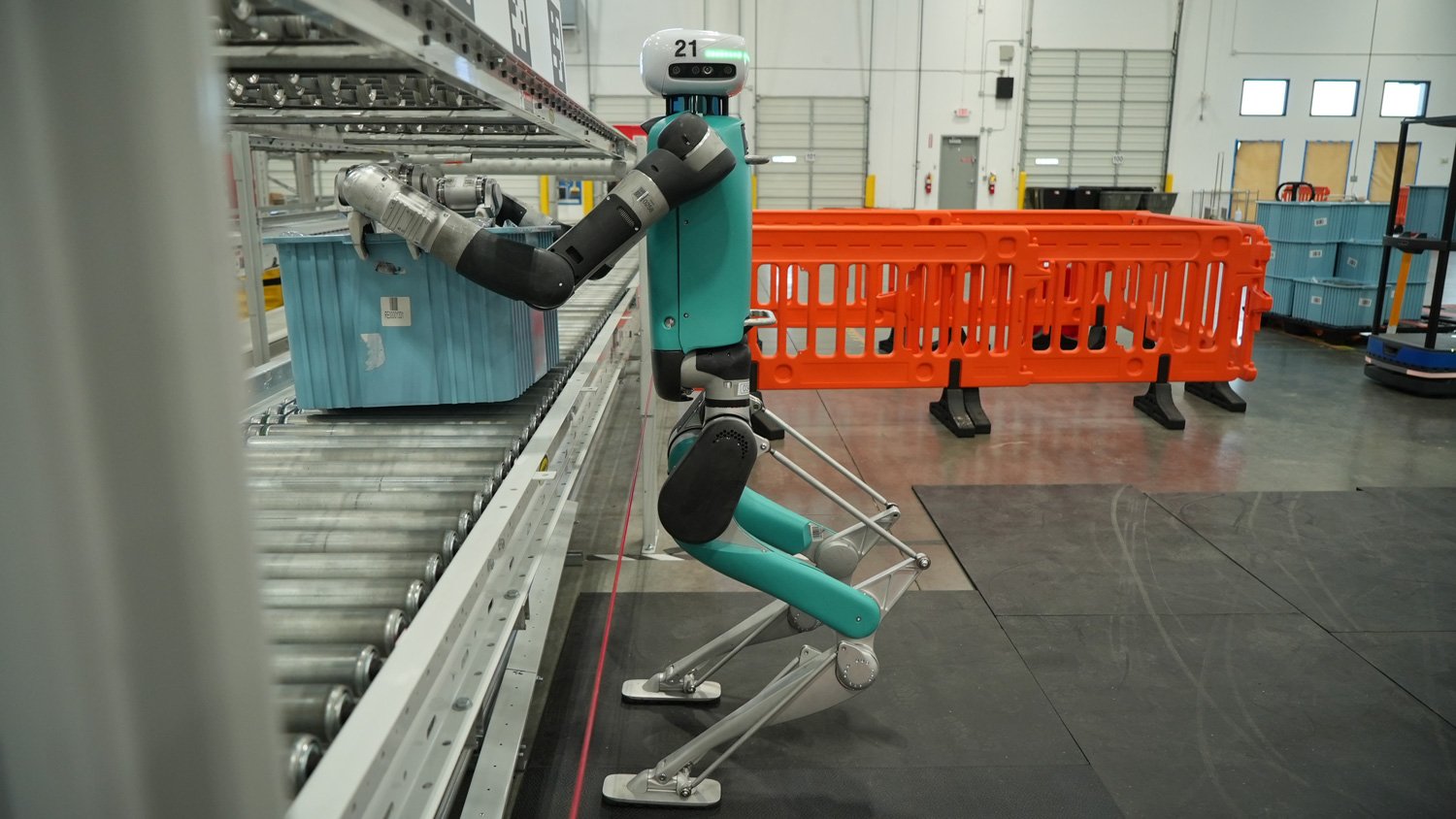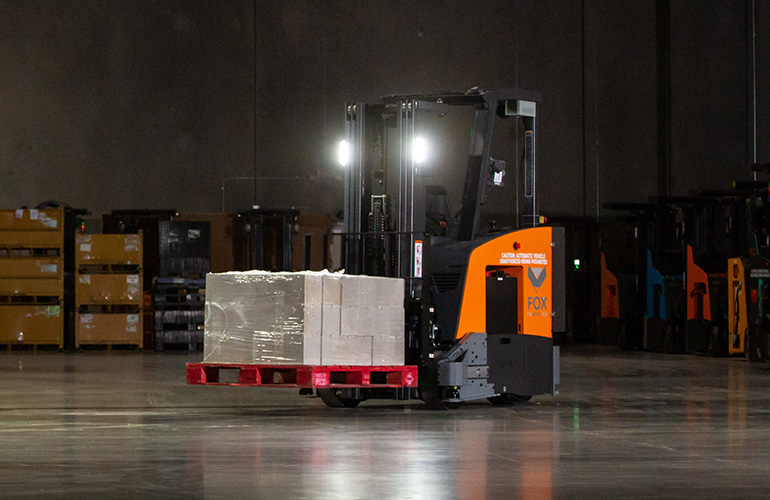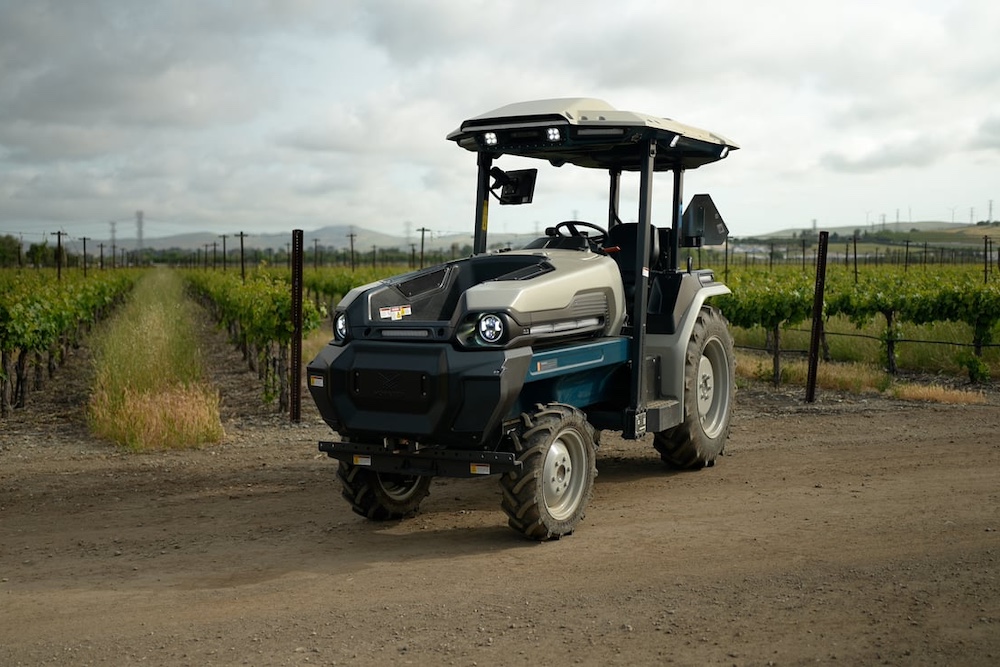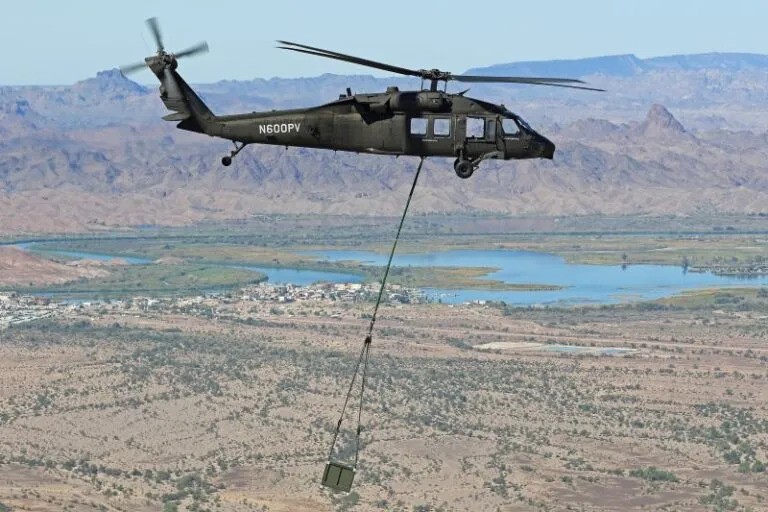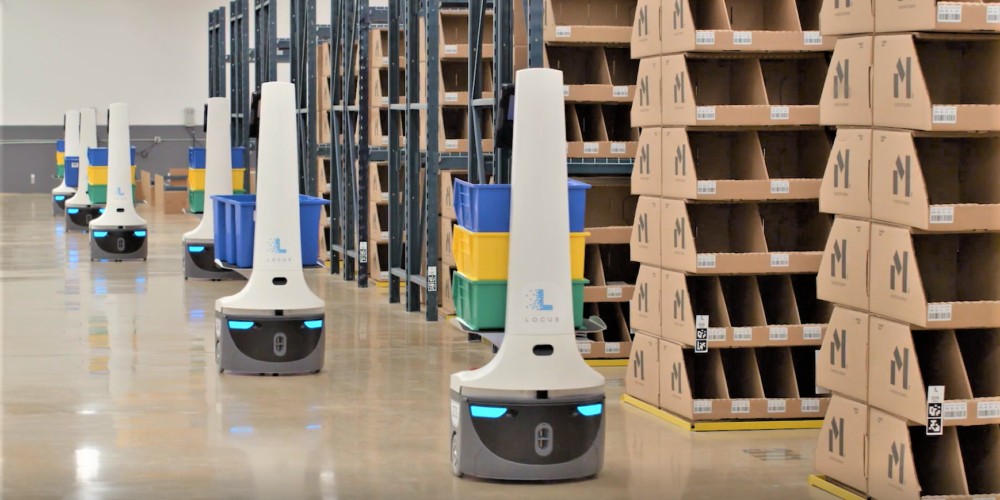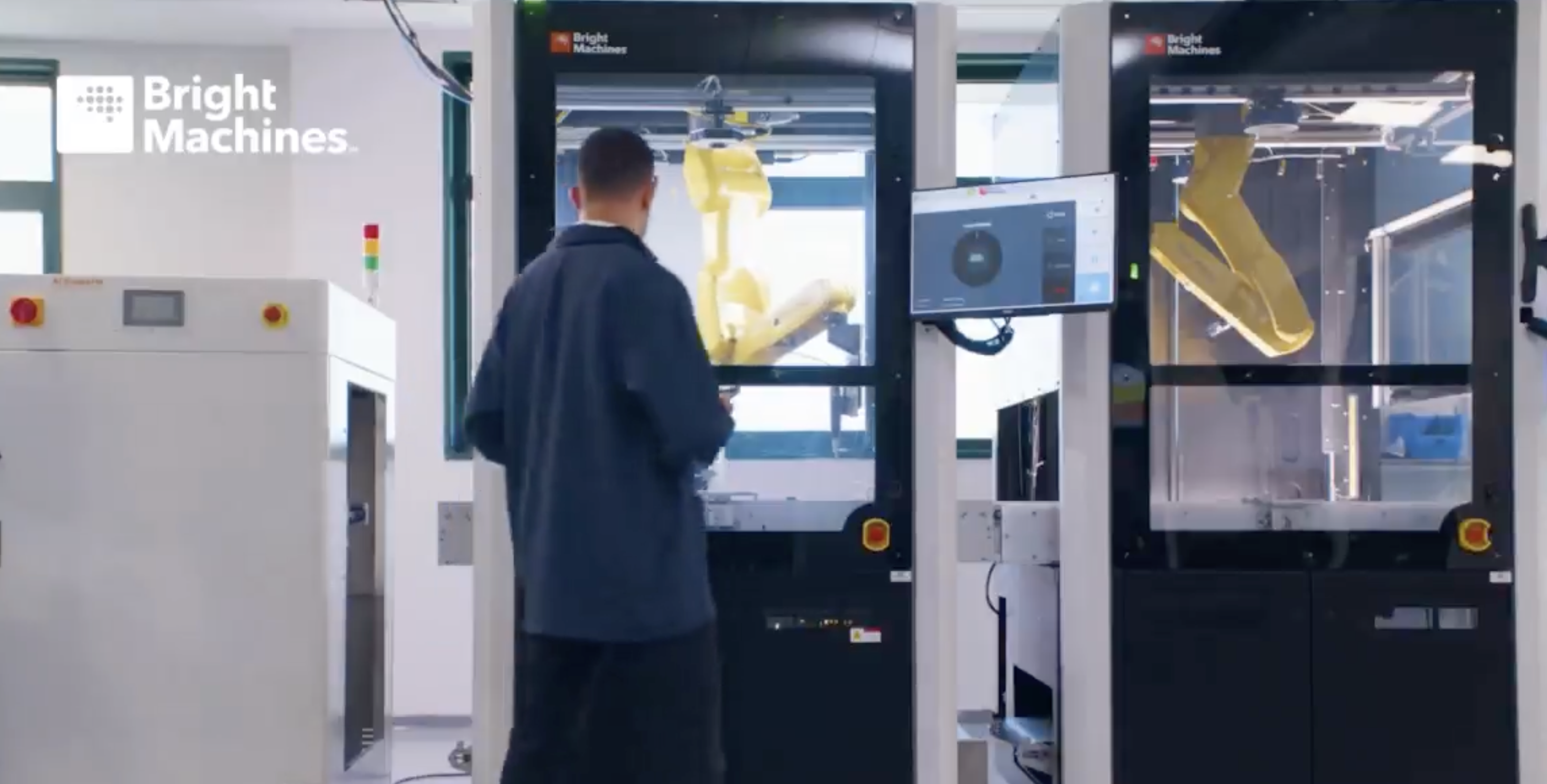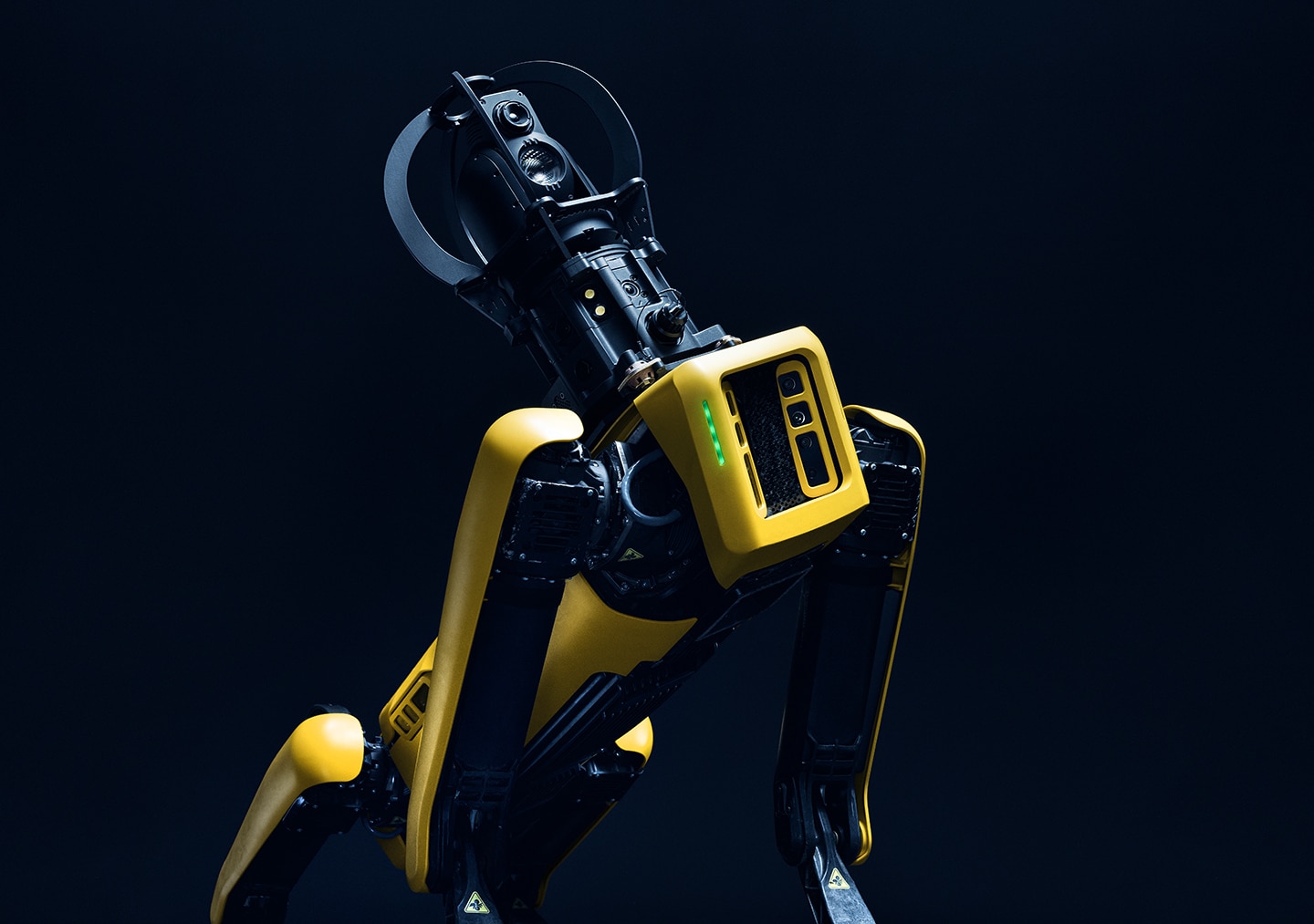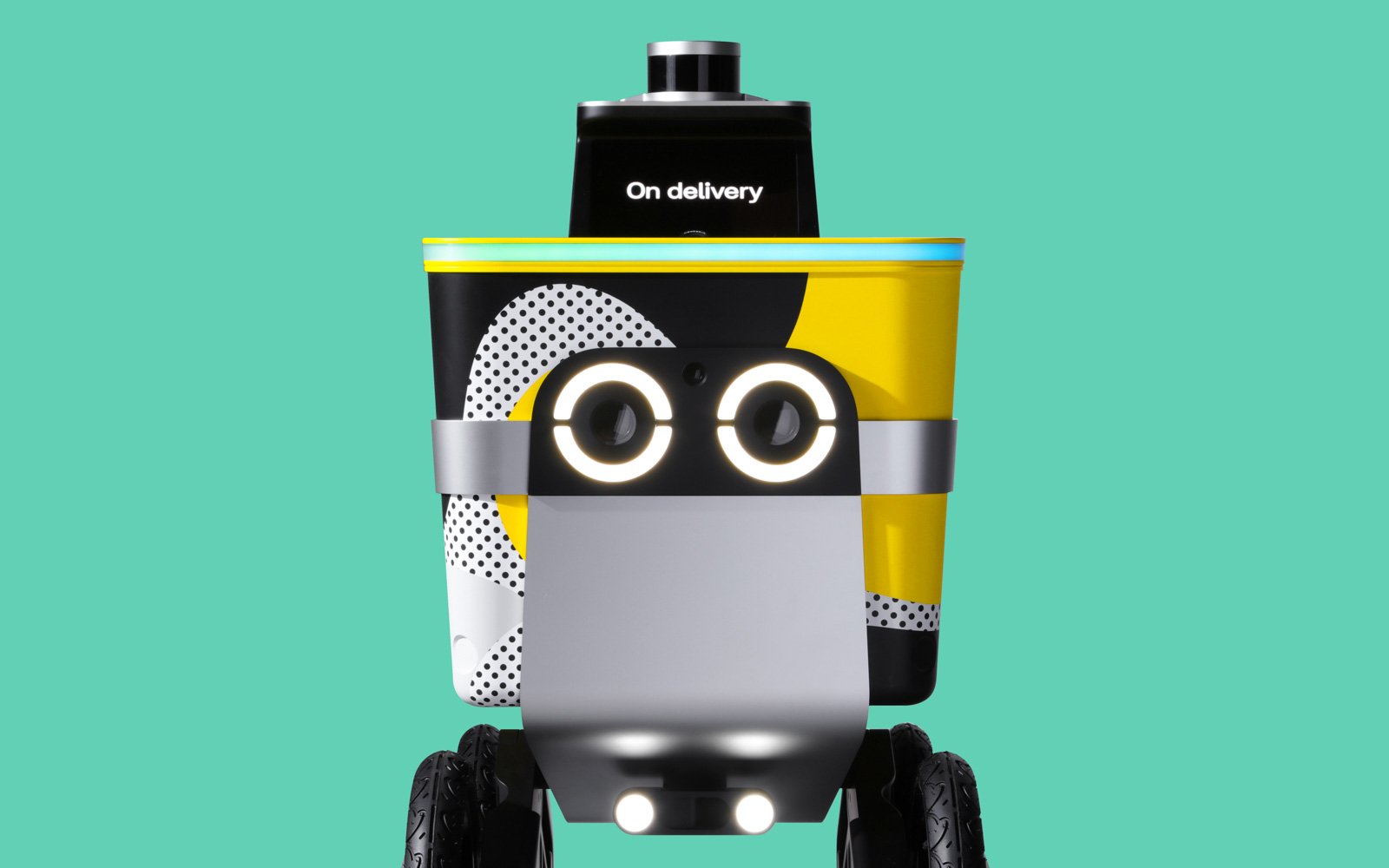TABLE OF CONTENTS
The global robotics market, valued at $34.06B in 2022, is projected to grow from $39.54B in 2023 to $134.64B by 2031, at a CAGR of 16.60% over the next seven years.
This growth is driven by innovative robotics companies leveraging AI and automation to address common manufacturing, warehousing, and agriculture challenges, such as labor shortages, hazardous and labor-intensive tasks, and inefficient manual data entry.
Robotics trends show robots’ increasing autonomy through AI and machine learning, the growing use of collaborative robots (cobots) across various sectors, and the adoption of augmented reality and virtual reality (AR & VR) for enhanced robot training and safety.
This article looks at some of the top robotics companies leading this innovation and how their advancements are shaping the future of automation and AI-driven solutions.
Rapid Robotics
Rapid Robotics is advancing automation by developing in-house robotic solutions that streamline manufacturing, logistics, and warehousing processes. By centralizing product designs and revisions, Rapid Robotics reduces manual data entry and improves revision management, enabling rapid customization and deployment of robotic systems. Their latest innovation, Rapid iD, addresses labor shortages and enhances operational efficiency by allowing robotic arms to perform precise tasks in end-of-line operations. Rapid Robotics is also partnering with major companies, including Fortune 100 firms, to transform their processes through automation.
Mytra
Mytra has developed an AI-driven system that automates warehouse tasks such as material movement and storage. By focusing on software rather than complex hardware, Mytra simplifies route optimization and inventory management, reducing strain on supply chains. After emerging from stealth with $78 million in funding, Mytra’s system enables three-dimensional movement, saving 88% of labor hours and increasing warehouse flexibility. Founded by leaders with experience at Tesla and Rivian, Mytra is already used at Albertson’s distribution centers and other Fortune 100 companies.
GrayMatter Robotics
GrayMatter Robotics tackles manufacturing challenges like labor shortages, hazardous conditions, and inefficiencies in high-mix production lines. By deploying AI-powered robots, GrayMatter automates time-consuming tasks like sanding, polishing, and grinding—operations that usually require extensive training and can cause repetitive stress injuries. Their GMR-AI™ technology enables these robots to self-program and adapt to varying production demands, reducing cycle times by 50-75%. GrayMatter’s systems also cut consumable waste by over 30% and maintain system availability of 95-98%, helping manufacturers achieve production goals with minimal downtime. With a recent $45 million Series B, GrayMatter’s solutions are now being implemented across aerospace, defense, and consumer products industries.
Agility Robotics
Agility Robotics is advancing the robotics industry by deploying its humanoid robot, Digit, across supply chains in partnership with Zion Solutions. This collaboration automates labor-intensive tasks like bulk material handling, which is prone to high employee turnover and injury rates. Integrating AI-driven adaptability into Digit, Agility Robotics automates redundant tasks and enhances workplace safety. Their cloud automation platform, Agility Arc, facilitates facility mapping, workflow definition, real-time operational management, and fleet coordination for the deployment and operation of Digit robots. Agility Robotics has also partnered with Amazon, which plans to deploy Digit robots in its warehouses.
Fox Robotics
Fox Robotics develops autonomous forklifts, known as FoxBots, to fully automate warehouse docks’ loading and unloading process. These AI-powered forklifts utilize machine vision and dynamic planning to safely unload 25 pallets per hour, 24/7, and transport them to automated storage systems. By integrating with existing systems, FoxBots enables warehouse associates to shift from manual labor to more strategic roles, optimizing operations and increasing job satisfaction. This transition allows workers to develop new skills, as demonstrated at Walmart’s distribution centers, where associates have adapted to managing these advanced robotics systems, tripling their output and helping advance their careers.
Monarch Tractor
Monarch Tractor developed the world’s first fully electric, driver-optional tractor, setting a new standard for sustainable and economically viable farming. The flagship MK-V model is designed for autonomous operations and can plow, mow, spray, and perform other tasks in vineyards, orchards, and dairies. Equipped with AI, the MK-V can operate autonomously or in shadow mode, following another tractor while gathering sensor data and video images to make real-time adjustments. With over 400 units deployed, Monarch’s tractors have offset more than 850 tonnes of CO2 emissions over 42,000 operational hours, demonstrating their commitment to sustainability and efficiency. Monarch Tractor recently raised $133 million in a Series C funding round.
Reliable Robotics
Reliable Robotics specializes in autonomous flight technology, particularly in automating aircraft like the Cessna Caravan. Their system enables remote piloting and full automation throughout all flight phases, including taxi, takeoff, and landing. By integrating a redundant and reliable actuation system with traditional flight controls, Reliable Robotics enhances safety by mitigating risks such as controlled-flight-into-terrain (CFIT) and loss of control, two leading causes of fatal aviation accidents. This technology offers safer, more reliable flights, benefiting cargo operations by addressing pilot shortages and operational challenges in remote or underserved areas.
Locus robotics
Locus Robotics specializes in warehouse automation with its advanced autonomous mobile robots (AMRs). These robots, like the LocusBot, are designed to work alongside human workers, enhancing efficiency and productivity in fulfillment environments. Locus Robotics’ AMRs significantly increase piece-handling productivity while reducing labor needs. They integrate swiftly into new and existing warehouse infrastructures, offering flexibility and minimizing workflow disruptions. Recently, Locus Robotics surpassed 3 billion picks across its global customer deployments, just 33 weeks after reaching 2 billion picks, marking a significant milestone in its high growth.
Geekplus
Geekplus develops autonomous mobile robots (AMRs) designed for picking, sorting, and handling industrial materials in logistics and warehouse automation. Its standout products—Shelf-to-Person, Pallet-to-Person, and Tote-to-Person robots—were recently showcased at the Modex 2024 conference, including the debut of the tallest warehouse mobile order fulfillment robot. The Shelf-to-Person system minimizes the need for extensive infrastructure investment, the Tote-to-Person system optimizes vertical storage in warehouses with high ceilings, and the Pallet-to-Person solution provides high-density pallet storage with efficient ground-level picking.
Figure AI
Figure AI, established in 2022 and valued at $2.6B, develops humanoid robots like Figure 01, designed to handle physically demanding and repetitive tasks across various industries. Figure 01 excels in manufacturing with tasks like assembly, welding, and inspection; in logistics, it sorts and transports packages; in warehousing, it manages inventory by picking, placing, and organizing items; and in retail, it stocks shelves and handles inventory. By automating these labor-intensive tasks, Figure 01 helps companies mitigate labor shortages, reduce injuries, and increase efficiency. As Figure AI continues to enhance its AI capabilities through partnerships with OpenAI and Microsoft, Figure 01’s ability to autonomously perform complex tasks is set to expand, further boosting its value.
Bright Machines
Bright Machines is a manufacturing technology company that leverages software-driven automation to modernize electronics assembly and production. The Bright Machines Microfactories combine robotics, computer vision, and AI-powered software to create flexible, scalable, and efficient manufacturing lines. By integrating intelligent automation, Bright Machines helps manufacturers reduce costs, improve quality, and increase production agility without the need for extensive retooling. Bright Machines solutions are particularly beneficial for industries like automotive, medical devices, and consumer electronics, where precision and adaptability are critical. In 2024, Bright Machines raised $126M in Series C Funding.
Boston Dynamics
Boston Dynamics develops sophisticated robots with agility and dexterity. Their flagship models are Spot and Atlas. Spot is a versatile quadruped robot designed for industrial applications, including remote inspection, data collection, and hazardous operations, ensuring safety and operational efficiency. Atlas is the pinnacle of bipedal robotics, capable of performing complex maneuvers such as jumping, running, and performing backflips. Boston Dynamics’ technical prowess is expanding the possibilities of robotic applications in real-world scenarios, setting industry standards for mobility, balance, and autonomous navigation.
Serve Robotics
Serve Robotics develops autonomous delivery robots that optimize last-mile logistics by safely navigating urban environments to deliver goods efficiently. Serve Robotics’ technology enhances delivery speed while reducing costs and environmental impact. As urbanization grows, Serve Robotics is positioned to shape the future of urban logistics. In January 2025, Atomi Financial Group Inc. invested in Serve Robotics (NASDAQ: SERV), signaling strong confidence in its growth potential and market strategy.
What’s next for the Robotics Industry?
The robotics industry is advancing rapidly as the top robotics companies integrate automation and AI into their products. From Rapid Robotics’ innovative design techniques to Monarch Tractor’s sustainable farming solutions and Figure 01’s constantly improving humanoid robotics, these companies are tackling key challenges such as labor shortages and supply chain disruptions.
AI, particularly when integrated with modern PLM systems, is reshaping the manufacturing industry enhancing decision-making, optimizing BOMs, and predicting supply chain disruptions. As robotics and AI evolve simultaneously, their impact on manufacturing, logistics, and other sectors will only grow, enabling faster, smarter product development and production processes. There’s never been a more exciting time for this industry.

